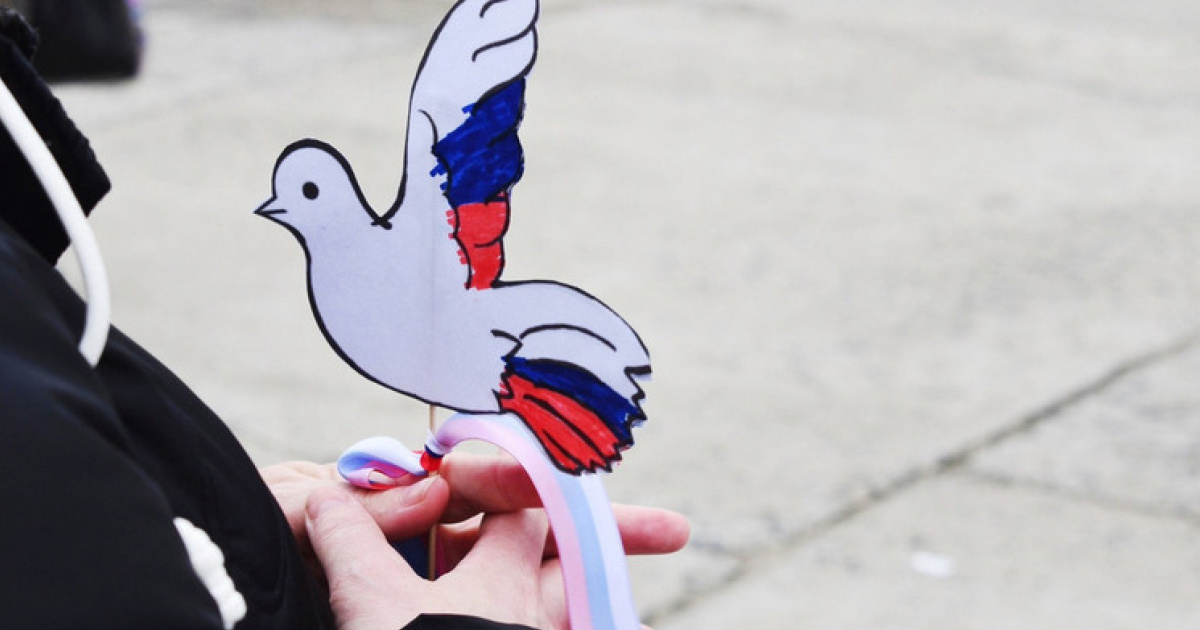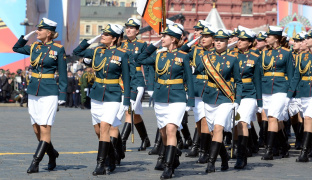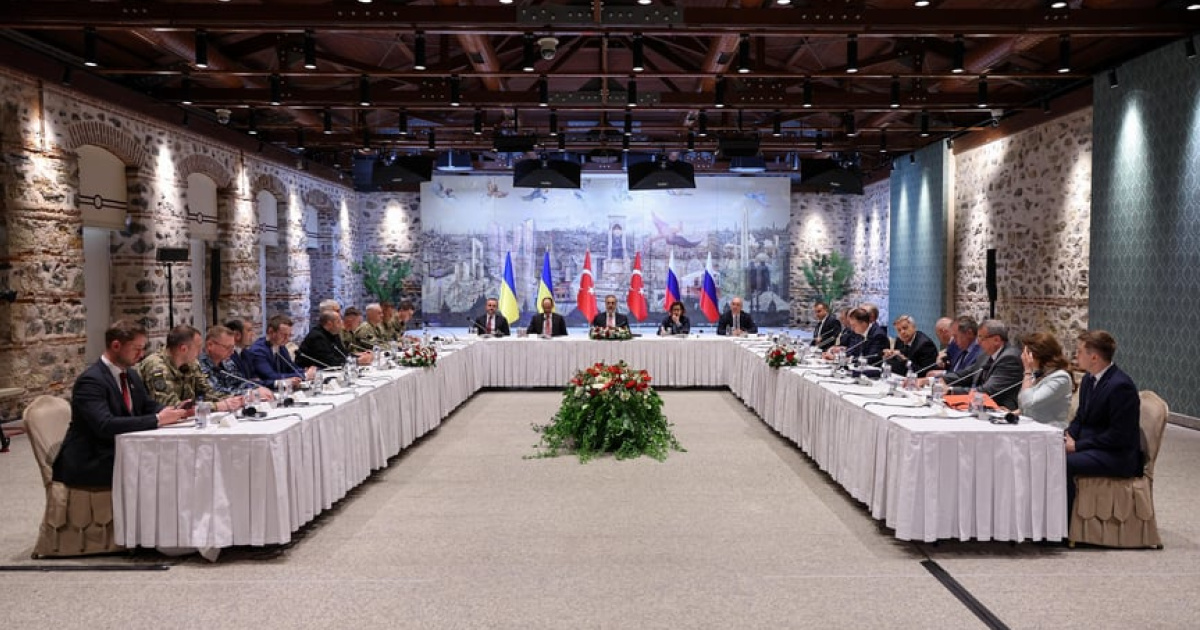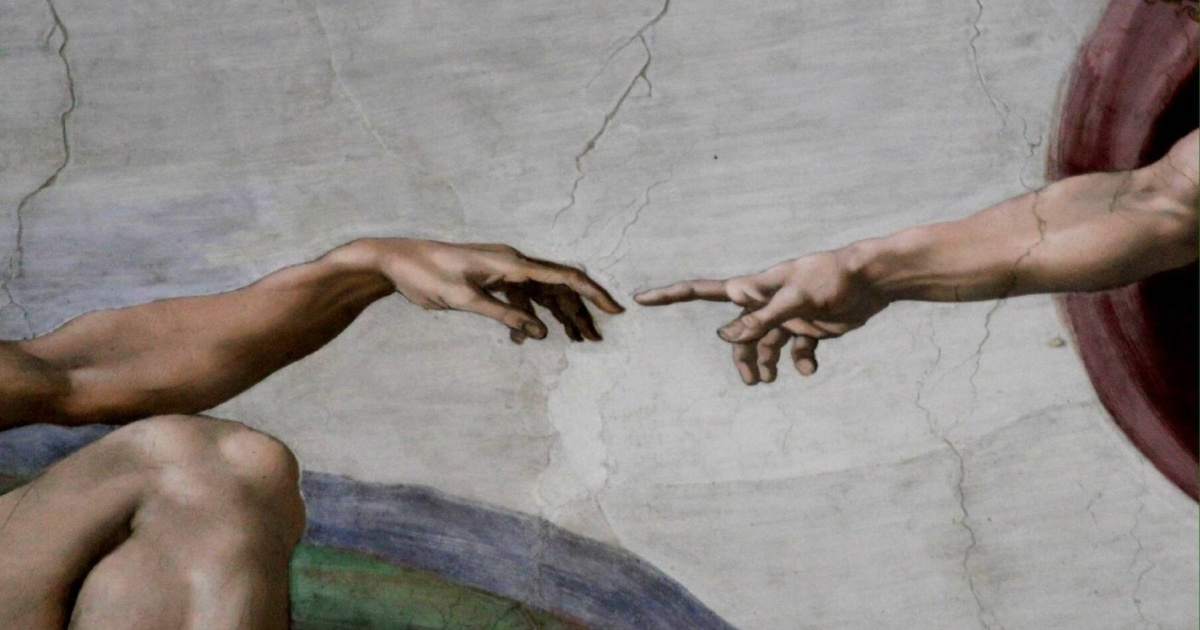Many Ukrainians knows former State Duma deputy Ilya Ponomarev as an opposition politician who, the only one among his colleagues, voted against the annexation of Crimea in March 2014. Shortly thereafter, the entrance to Russia was closed for him, a criminal case was opened, and the next business trip turned into a forced two-year stay in the USA. In June last year, he got a leave to remain in Ukraine and is now actively engaged in attracting investment to our country. Ilya Ponomarev told Ostrov what prevents the arrival of Western investors in Ukraine, about interests of the Kremlin, and upon what conditions the Donbass and Crimea will be returned under Ukrainian jurisdiction.
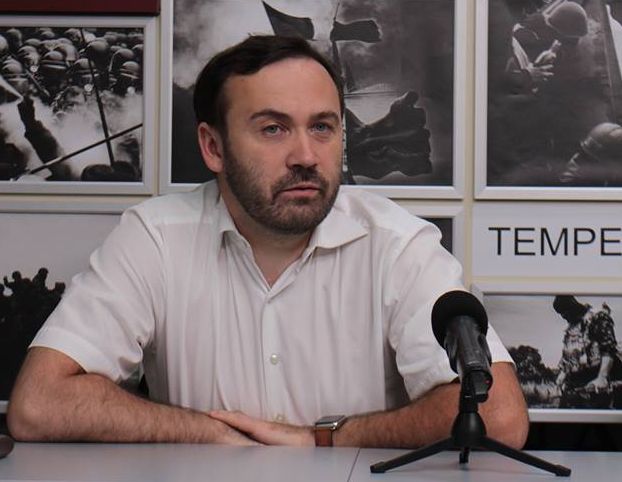 - You have been living in Kyiv for almost a year and a half, engaged in attracting investment to Ukraine. Which industries are of interest to investors now?
- You have been living in Kyiv for almost a year and a half, engaged in attracting investment to Ukraine. Which industries are of interest to investors now?
- Agriculture, retail and energy sector. Especially oil and gas production – this is a sphere of my interest in attracting investment to Ukraine.
- What are the results by now?
- They will be soon. I thought they would be earlier, if there was no such resistance from your elite. I expected problems from corruption, but in fact, it turned out that the Ukrainian government and business deliberately resist the receipts of foreign investments. Of course, this sad fact drags the whole process, but in no way stops.
- What are the "stumbling blocks" in Ukraine that hamper the coming of investors?
- Your elite consider the country to be their own property and treat it as a closed system. Regardless of the fact that the taking points on foreign investment's necessity are constantly on the air, in fact, they (investments – ed.) are actively harmful for them. The authorities perceive the emergence of new independent players with money, even the foreign ones, as a threat to political stability.
- If we talk about the gas industry, the Ukrainian government set a task for Ukrgasvydobuvannya state-owned company to increase the gas production, hoping to switch over to gas self-sufficiency until 2020. From your point of view, how real is this?
- This is absolutely real, but so far the government does not take even half a step in this direction. Management of Naftogaz works well, but they are limited by the system. Ukraine is able to double its gas production, if there is not one state monopoly and several small enterprises, established by former officials and oligarchs, but full-fledged independent private players in this market. Not as large as Shell or Chevron, but of the middle level, who come with new technologies and clean money, and are not afraid to experiment. However, to create such an ecosystem, it is necessary to demonopolize this market, privatize Ukrgasvydobuvannya, not entirely, but by parts, in order to have several competing owners. In this case, there will be development.
Only a step to liberalize the gas market has been taken so far. At the same time, supporters of the IMF line insisted on a radical increase in gas prices, what, in fact, is not quite honest from the point of view of reforming, since the inefficiency of state monopoly has simply been shifted to the shoulders of the population. First of all, liberalization is not an increase, but an equation of gas prices for industrial and retail consumers, in order to make speculation and corruption in this market impossible. It worked. And now it is important that the money, received in the form of super profit by Naftogaz as a result of the tariff increase, are being sent not to the company itself, but to support the economic development in general. Now it turns out that Ukraine is building its own Gazprom. At first, there should be privatization so that the investment risks are on the private trader, not on the population.
- If Ukraine manages to achieve self-sufficiency in gas, will export be also possible?
- Of course. Ukraine has a great potential for the gas production growth, but nobody has been engaged in this for 25 years, since Russian gas was cheap. There are conditions for production: resources, technologies, opportunities to do everything under the conditions of low geologic hazards, as the region is well explored. But all this should be done not by the state-owned companies, but by the private ones.
- The Prosecutor General's Office has recently stated that the murder of Denis Voronenkov is almost solved. In particular, it is known that the contractor is in the territory of the Russian Federation and is involved in the Russian secret services. Whom do you consider to be involved in the murder of Voronenkov?
- I think it is more likely that the contractor is that person about whom Denis himself spoke as of the main danger for himself – the FSB general Oleg Feoktistov. Voronenkov repeatedly called this name, and I think it makes sense to take this into account. And I think that the Prosecutor General's Office of Ukraine should tell about the technical chain: the contractor – the organizer – the performers and the persons involved. As far as I can understand, they already know the organizer.
- Do you feel yourself safe in Ukraine?
- Initially, I believed that I came to a country at war, which has a full-fledged armed conflict with aggressive Putinism. Naturally, there are shots and murders in the war. In principle, this war is global, and I am a soldier in this confrontation, and from the fact where I am – in Ukraine, America or the UK – the situation does not change dramatically. Unless there can be a different threshold of danger. But, as we see, no country, even with the most powerful secret services, can provide effective protection: Voronenkov was killed in Kyiv, former FSB officer Alexander Litvinenko died after poisoning in England, Russian media manager and former minister Mikhail Lesin - in the USA.
- The SBU repeatedly states about the work of the secret services of the Russian Federation in Ukraine to destabilize the peaceful regions of Ukraine. How real are these facts?
- I think they are real. But they do not prevent to perceive such statements as a logical behavior of any bureaucracy that strives to shift the problem from itself to someone else. Russian residentura is well developed in Ukraine, but where exactly? Alas, the most of it is just among the employees of secret services and authorities. And what is more dangerous for Ukraine – the dishonesty of representatives of their own elite, which replenish their pocket, or the actions of Russian residentura – is a controversial topic. Knowing the "quality" of Russian residentura, I venture to suggest that its elite steal more. At the same time, we should not forget that the Kremlin always aspires to use any problem in Ukraine, blowing it to a large scale with the help of propaganda tools and agents of influence.
- From your point of view, why did Putin's statement on the introduction of peacekeepers into the Donbass on his terms sound right now? Many experts say that this is an attempt to legalize the "DNR/LNR".
- I believe that Putin's interest initially was and is not to keep the "DNR/LNR" in one form or another – as a part of Russia or as a separate "Transnistria". His task is to "sell" this territory at а high price. Russia does not need the Donbass as a territory, it is intended for capitulation. First of all, in exchange for recognition of the annexation of Crimea. From the very beginning, the conflict in the east of Ukraine was started only for this purpose. The question is in the conditions. Putin does not want to return this territory for no particular reason. He needs an opportunity to say on TV that we won and fulfilled the task.
Why did this statement sound right now? I think it is logical. New American administration had some time to form a point of view concerning this conflict. They understand that the Minsk agreements do not actually work, but the American party will not use direct military intervention either. At the same time, the USA realizes that Europeans will never decide this issue. But Petro Poroshenko has long ago talked about the introduction of peacekeepers, and this topic eventually reached the consciousness of Trump. He, in turn, brought to Moscow his vision of solving the problem by introducing peacekeepers to the Donbass by the special representative of the U.S. State Department for Ukraine Kurt Volker, who met with Surkov. Two weeks later, the Kremlin responded to this proposal in the form of a statement by Putin.
It is clear that these peacekeepers can be organized in different ways. The ideal situation for Kyiv is when peacekeepers are standing along the Ukrainian-Russian state border, and for Russia – along the line of demarcation.
There is an intermediate version of the deployment of the peacekeeping contingent between these approaches, which I consider to be the most reasonable: the entire occupied territory is under the control of the peacekeeping forces. And this is a demilitarized zone, in which the international peacekeeping contingent carries out police functions. This scenario is optimal, but it requires money and a sufficient number of peacekeepers - several tens of thousands of people. But the question is who will be willing to pay for this and send their soldiers to participate in this mission? I suppose it can be Canada and a few more countries, but their list is not as long as we would like it to be.
In any case, the initiative on peacekeepers is a very positive step. Firstly, the decision to introduce them, from the standpoint of international law, requires an explicit decision by Russia as a permanent member of the UN Security Council. Secondly, the consent of other participants of the Minsk process is required. And thirdly, the participation of the Donbass separatists is excluded, since they are not subjects of international law, unlike Ukraine. Of course, Putin said that Kyiv should solve this issue with Donetsk and Luhansk at first, but these negotiations have no legal force. Although some consultations are likely to be required.
- It turns out that the position of the Kremlin is as follows: you recognize the Crimea, and we give the Donbass back?
- This is a conceptual level. So no one will say like that publicly. In addition, everyone understands that neither the U.S. nor the EU will ever officially agree that the Crimea is part of the Russian Federation, but the Kremlin does not expect it anyway. Russia expects that the peninsula will continue to be considered an occupied territory, but at the same time they will not impose sanctions for this annexation.
- By the way, do sanctions have an impact and influence within Russia itself?
- Yes, but they influence in the opposite direction. When they were introduced, I, like many opposition politicians, spoke about the need for broad personal sanctions - personally against Putin and his entourage, who are themselves war criminals, and civil servants who ensure the functioning of this regime. But as world experience shows, sanctions against the country almost always lead to that the citizens rally around their leaders. Now they blame external aggression for any problems of domestic politics and economy.
As a rule, supporters of these sanctions object, saying that they still lead to the fatigue of the Russian elite, for which it became more difficult to conduct business. Yes, in part this is true. I notice displeasure of many representatives of Russian business, but it makes sense only when people have an alternative. Roughly speaking, if Voronenkov and Litvinenko were alive and successful in Ukraine and England, then their path would be an alternative example for the rest.
- The same Volker noted that the issue of the Crimea should not be resolved separately from the problem of the Donbass. In this case, under what conditions will the peninsula return under Ukrainian jurisdiction?
- In my opinion, there can be two scenarios. The first one is catastrophic - the disintegration of Russia as such.
- Is it possible?
- This option cannot be ruled out, although it is not the most likely one. The longer Putin is in power, the more real this opportunity is, since his rule destroys the very basis of the existence of the state, the issue of budgetary relations within the Russian Federation, destroys the unity of the state as such. In this case, the Crimea, most likely, will return back to Ukraine. But at the same time, threats to Ukraine will be even higher than they are now. Instead of one aggressive neighbor there would be at least 10 such neighbors: in the event of the collapse of the Russian Federation in each region, national populists will come to power with a high probability. At the same time, they will have nuclear weapons on hand, as well as a very malicious and hungry population. I would not want such a development of the situation for the Ukrainians.
- And what is the second scenario?
- I think it is more likely. This is the economic revival and prosperity of Ukraine. In Russia, alas, the trend of general socio-economic recession continues. If there is a prosperous country next to it, then people will have something to think about. Ukraine should prepare a strategy for the reintegration of the peninsula, which would be appealing for Crimeans. But so far, the inhabitants of Crimea are not eager to return. Time, nevertheless, works for you, and I am sure that Crimea will return of its own free will.
- From your point of view, what are the main three factors that determine the economic prosperity of Ukraine?
- Openness of the economy, foreign investment and the correct understanding of your competitive advantages. The latter are not some newfangled tricks, such as green energy, but the really existing sectors of industry - coal, metallurgy, energy, agriculture, the resources for modernizing production and its development, creating new jobs.
For example, the situation with the protests of car owners with European registration plates. As a member of the Duma's economic policy committee, I remember the debate on a similar issue about 10 years ago in Russia. And I know that the issue can be solved for six months at most. The government decides that, with high import duties, all duties and taxes for assembly production in the country are abolished. You have border areas where Western automakers can create the simplest assembly sites where only the body, chassis and wheels need to be assembled. As a result, factories with jobs will be created on the Ukrainian territory, and taxes will be paid to the country's budget. And people, instead of going to work in Germany, will work in Ukraine. And use cheap cars.
- What are the weaknesses of the Ukrainian parliament today? The oligarchy?
- Rather, faith in the oligarchy. The power of your oligarchs is greatly exaggerated, as well as the level of corruption, in my opinion. Yes, this is a significant factor, but this is not the root cause, but a consequence of the general system of state power. The problem is the disinterest of elite groups in the development of their country. In fact, they are only interested in taking out funds and they do not care what remains after that in the state. To prevent outflow of funds and people, it is necessary to "tie" business players to the industry in the state.
- How effective do you think the actions of the Ukrainian authorities to block Russian social networks and internet resources are?
- You can deal with complex issues, socio-economic reforms, or you can deal with more simple ones, but vigorously discussed in the media. And at the same time, you are showing what a patriot you are.
The issue of national construction is very important for Ukraine, where the social unit is traditionally a family, and not public or state ties. The family is fine, but the lack of public instincts makes the country defenseless against aggression and makes it difficult to form a nationally responsible elite, because it is also primarily responsible to its families, and not to the community. We need to understand what is primary for the formation of a nation. The issue of language, national and cultural identity? A sound mind in a sound body. I believe that first, there must be some foundation - economic relations, the welfare of members of society, and on its basis, you can build national self-consciousness.
Therefore, my view on the various "patriotic" initiatives of deputies and ministers is based on my understanding of Ukraine's economic interests. Will the new law on education help them? I am afraid, it will rather reduce the competitiveness of the nation. And I would rather forbid state employees to use Russian social networks - simply for security reasons. I can say that now a large number of Ukrainian government officials use both Telegram and VKontakte despite the ban. In general, bans cause irritation inside society. Forbidden fruit tastes the sweetest, you know. Ukrainian entrepreneurs lost a big market as well. Is it justified from the point of view of national development? This is a question for you, and not for me, a Russian.
Interviewed by Iryna Holizdra, OstroV
